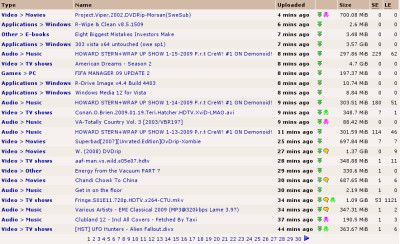From our front-page news:
When it comes to technology, I don't often agree with many judges, but this one I do. Judge James P. Jones gave his opinion in a recent P2P-related lawsuit, and came to the simple conclusion that a downloaded file doesn't necessarily equate to a lost sale, which is a mindset I've had for quite a while. The reasons are simple. I've dealt with enough "pirates" through the years, and most of these people are those who wouldn't pay for a game if it was a single dollar. It's a mindset issue... free is free.
I'm not at all condoning that this is the right mindset to have, because I feel that if you want something, you should pay for it. But this is reality. The hardware side of things is a little more safe, because it's very difficult to pirate a piece of hardware, and when it comes down to it, why would you want to? Media is unbelievably easy to pirate, so people take advantage of it.
To me, it's a simple theory. There's no way that if 10,000 people download a file, they would pay for it if it was unavailable online. Given the fact that it's very easy to pirate anything nowadays, people download things they don't even care for, just because they can. It's like going to the supermarket and picking up fruitcake just because it's on sale. It's obviously never going to be eaten, but the allure of it sitting there for such a good price is too good to pass up.
This has turned into a rant post, but there is a lot more to the story than what I have to say, so check out the article below and get a bit more information and all the stats you need to come to your own conclusions.

"Those who download movies and music for free would not necessarily purchase those movies and music at the full purchase price," Jones wrote. "[A]lthough it is true that someone who copies a digital version of a sound recording has little incentive to purchase the recording through legitimate means, it does not necessarily follow that the downloader would have made a legitimate purchase if the recording had not been available for free."
Source: Ars Technica
I'm not at all condoning that this is the right mindset to have, because I feel that if you want something, you should pay for it. But this is reality. The hardware side of things is a little more safe, because it's very difficult to pirate a piece of hardware, and when it comes down to it, why would you want to? Media is unbelievably easy to pirate, so people take advantage of it.
To me, it's a simple theory. There's no way that if 10,000 people download a file, they would pay for it if it was unavailable online. Given the fact that it's very easy to pirate anything nowadays, people download things they don't even care for, just because they can. It's like going to the supermarket and picking up fruitcake just because it's on sale. It's obviously never going to be eaten, but the allure of it sitting there for such a good price is too good to pass up.
This has turned into a rant post, but there is a lot more to the story than what I have to say, so check out the article below and get a bit more information and all the stats you need to come to your own conclusions.

"Those who download movies and music for free would not necessarily purchase those movies and music at the full purchase price," Jones wrote. "[A]lthough it is true that someone who copies a digital version of a sound recording has little incentive to purchase the recording through legitimate means, it does not necessarily follow that the downloader would have made a legitimate purchase if the recording had not been available for free."
Source: Ars Technica
